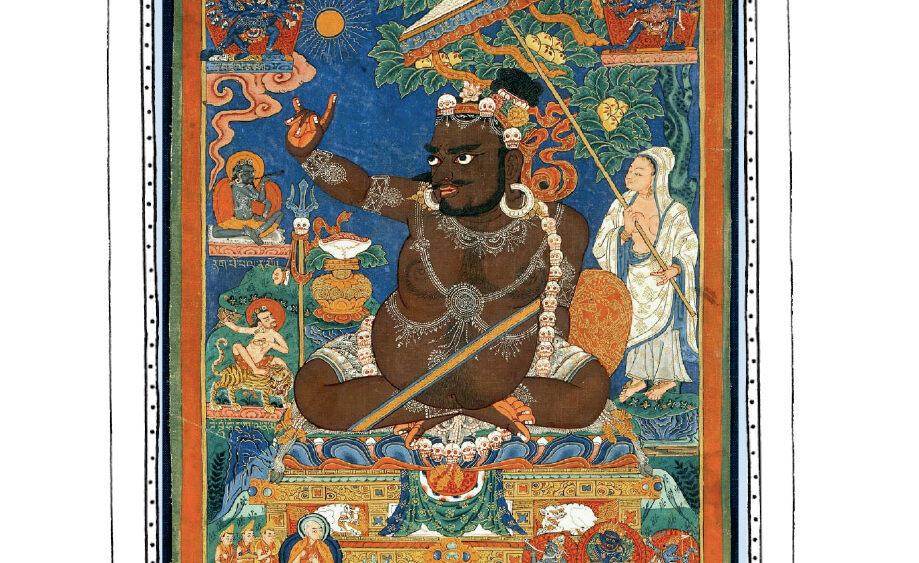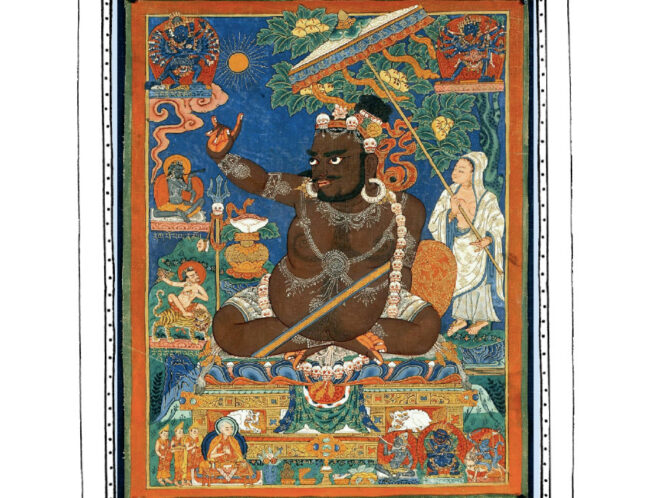
A Western master yogi on the similarities between Jesus’s teachings and the traditions of yoga.
I was twelve years old, when I attended a Billy Graham rally with a hundred thousand other persons at the Los Angeles Coliseum. I was overwhelmed by its intensity, and when Billy Graham called upon us to come down to the stage and declare our commitment to Jesus Christ, I responded. I accepted Jesus Christ as my Lord and Savior. And I began to dream of one day becoming a Christian missionary in Africa.
I was fifteen years old when I attended a “Human Encounter Session” at the local Y.M.C.A., a half mile down the road from Westchester Lutheran Church. For two full days, about sixty of my classmates from high school sat in a circle and shared our concerns about life. We talked and listened to one another for hours. A Y.M.C.A. counselor gently moderated the discussions, giving everyone an opportunity to share their heartfelt insights and questions. Near the end of the second day, the discussion died down. No one had anything more to say. We seemed to have collectively reached a place of rest. Suddenly, I had my first spiritual experience. I transcended my ordinary mental state and entered into a state of quiet ecstasy. I realized that there was only one Being in the room who was speaking earnestly through all of us, guiding us back to the realization of our true identity, beyond names and forms. This Being permeated everything, and was totally loving and benevolent. I was transfixed by the experience, and for days afterwards enjoyed an altered state of consciousness wherein I felt the oneness of everything. It was truer than anything that I had ever experienced before. Gradually, however, this state went away. It left me with a deep longing to find it again.
In the years that followed, I delved into various disciplines of meditation, eastern religions, and found my home in Yoga, without ever leaving the original teachings of Jesus. Yoga reflects what Jesus said in his parables, sayings and admonitions.
The parables and sayings of Jesus can be grouped under several important themes: reversing natural human inclinations, the Kingdom of Heaven, entering the Kingdom of Heaven, purity, on worry and being present, on aspiration, showing the path to others, God’s unconditional love, and forgiveness of sins, and the karmic consequences of our actions. Many of the insights that I have had about them are informed by comparisons that I have made with the teachings of the Yoga Siddhas, who were contemporaries of Jesus, as well as with the Gospel of Thomas, discovered in the Sinai Desert in 1945. Most of the following quotations from the New Testament are taken a modern language translation from The Five Gospels, by Robert Funk and Roy Hoover.
Reversing Natural Human Inclinations:
“Be ye perfect, even as your Father in Heaven is perfect,” (Matthew 5.48 with parallel in Luke 6:36). One of the meanings of the word for a Yogic saint or Siddha is “one who has become perfect.” Jesus challenged his listeners to perfect themselves, to overcome their lower human nature, and to become divine. Jesus, like the greatest of Yoga adepts, made his life his Yoga. He overcame all the ordinary limitations of the human existence to reveal his true nature, and more importantly, He admonished His listeners to do the same.
Jesus asks us to do the opposite of what human nature would ordinarily cause us to do. He said:
“Don’t react violently against the one who is evil; when someone slaps you on the right cheek, turn the other as well. When someone wants to sue you for your shirt, let that person have your coat along with it. Further, when anyone conscripts you for one mile, go an extra mile.” (Matthew 5:39-41, with parallels in Luke 6.29)
“Give to the one who begs from you; and don’t turn away the one who tries to borrow from you.” (Matthew 5:42, with parallels in Luke 6.29)
“Love your enemies.” (Matthew 5.43 with parallel in Luke 6:27-28).
Because the commands are so extreme, even ridiculous when








